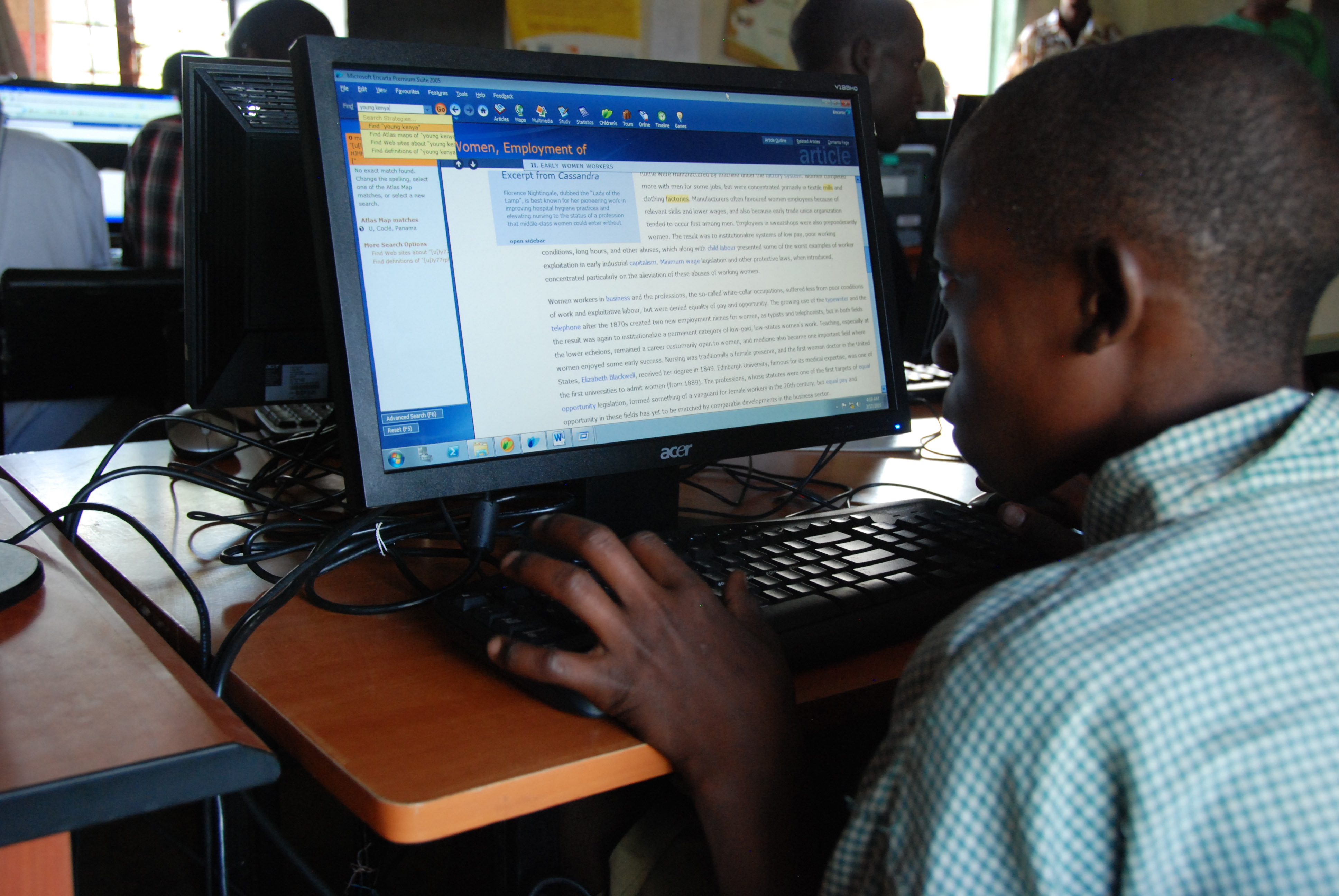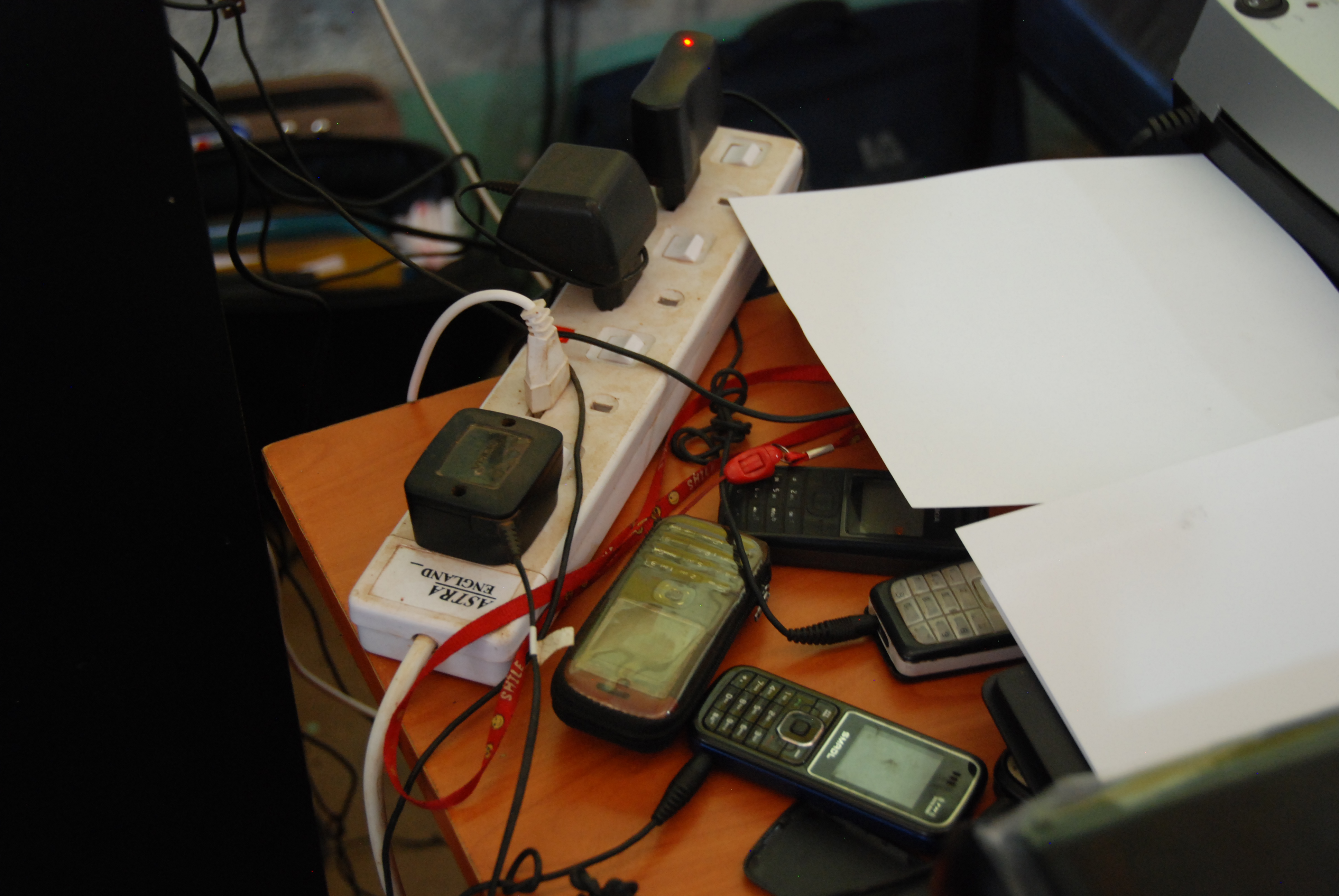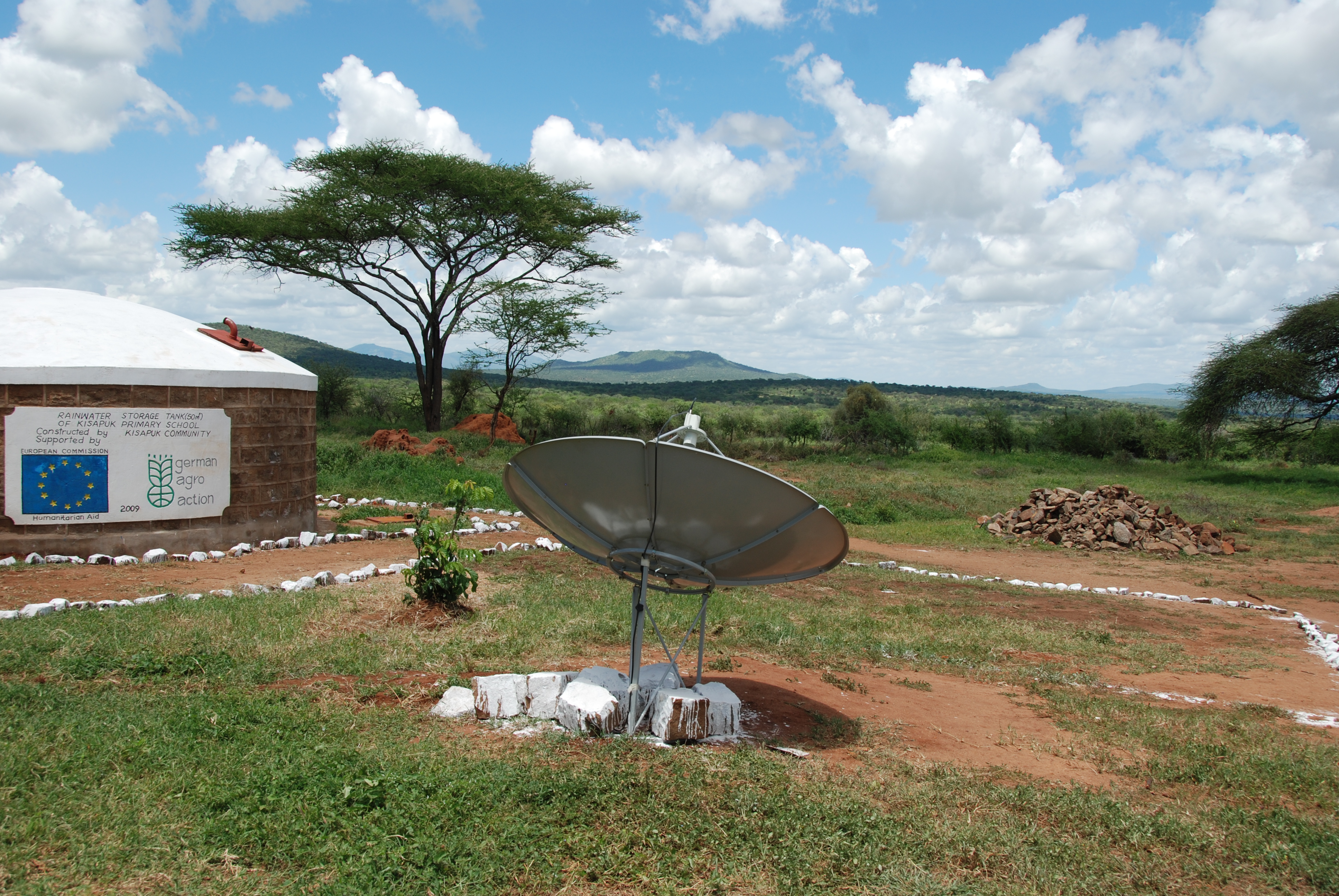From a Lion to a Mouse; remote computing access provides a different way of life in Kenya
Students using Windows MultiPoint Server at the Kisapuk Community Center in southern Kenya
A few weeks ago, our colleagues on Microsoft's Environmental Sustainability Team shared a blog post on how Windows MultiPoint Server was enabling increased access to computer education and training, while using solar power in low-cost computing environments. The project was created with our partner NetHope.
Last Spring, I had the opportunity to visit Kenya as part of the NetHope member summit held in Nairobi. In preparation for the visit, Microsoft Community Affairs and the Windows MultiPoint Server team, in conjunction with NetHope and WorldVision Kenya deployed a Windows MultiPoint Server at the Kisapuk Community Center in the Kijodo district of southern Kenya. The center is remarkable: it is a simple, three-roomed building used by the local community as a community center, gathering place, classroom, library, and computer center. Its electricity - invaluable also in charging local residents' mobile phones - is provided entirely by solar power, again thanks to the work of NetHope and World Vision Kenya.
In addition to powering computers, solar power provides charging services for residents' mobile phones
The Windows MultiPoint Server team was very interested in learning how MultiPoint Server could benefit and be used in very remote computing environments with very non-traditional power supplies. I am pleased to report that the project, from its implementation last year to the present day, continues to be a great success. The deployment effectively doubled the number of computer workstations available to residents through the community center, but without doubling power consumption or electricity needs. It has proven to be a valuable, easy-to-administer tool that provides local residents with important connections to information, training, and knowledge online.
Internet access is available via satellite to the community center
I sometimes have mixed feelings when I see very modern technologies being adopted within communities whose traditions and ways of life are sometimes centuries-old. It was important, and interesting for me to hear some of the community elders speak of how important it was that their young people gain new skills and abilities so that their culture can remain vibrant and alive within an ever-changing world. A parent's desire for the education of herchildren is absolutely universal. "When I was young I needed to learn to kill a lion," one of the elders shared with us, "but today, our children need to understand computers and the Internet so that they can survive."
I hope to have the opportunity to visit again someday and see how technology is helping parents to educate and prepare their children for the world in which they are growing up. Through the wonders of modern-day technology, it has been remarkable to keep up with some of the individuals I met at the center through online social networks.
The full post from the Environmental Sustainability team is available here.
A brief video I put together summarizing the project is available here.
[View:https://www.youtube.com/watch?v=NMmRHtpNq7k&feature=player_profilepage]


